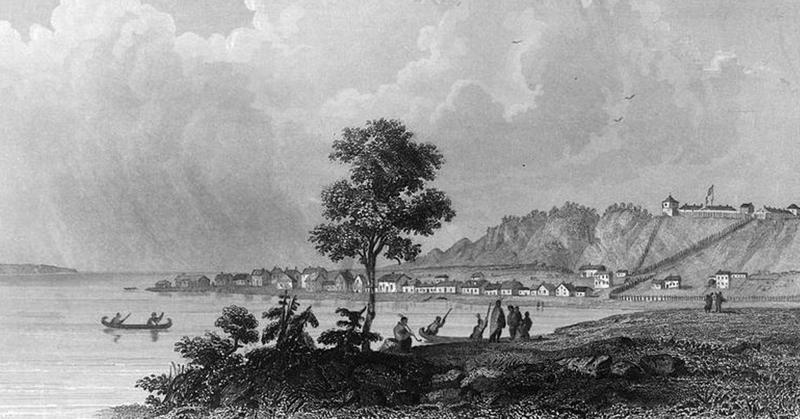The Lacrosse Double Cross And The Majorly Gullible Major
By | March 23, 2022

Sandwiched between the French and Indian War and the birth of the United States was a bizarre and brazen attack that ousted the British from Fort Michilimackinac, albeit temporarily, and put the Ojibwe nation in control of the vital Straits of Mackinac. This little-known event in American history included a game of lacrosse and a rather gullible British major who turned a blind eye to several red flags.
Fort Michilimackinac
Fort Michilimackinac is strategically located at the tip of Michigan's lower peninsula at the Straits of Mackinac. It was originally a French fort, but the English had recently assumed control of it after the French and Indian War, which left the French ousted from most of the territory that now makes up the United States. It was placed under the command of Major George Etherington, a 30-year-old British officer, who worked with his soldiers to build a relationship with the Ojibwe and Sauk tribes as well as the French-Canadian fur trappers and traders who frequented the fort.
In the weeks leading up to the Ojibwe attack on Fort Michilimackinac, Major Etherington received word that the trading posts had been nearly emptied of knives and hatchets by the Native Americans but thought nothing of it. He also dismissed the many rumors circulating among the French-Canadian traders that the Natives were plotting an uprising. In fact, he became so annoyed that he said if he heard any more of the matter, he would lock up the gossipers in Fort Detroit, unaware that Fort Detroit had been under attack by an alliance of Native American tribes led by Pontiac.

Attack On Fort Michilimackinac
On June 4, 1763, the chiefs of two nearby Ojibwe tribes, Minweweh and Madjeckewiss, invited Major Etherington and his men to watch a lacrosse game between the two tribes in honor of King George's birthday. To make it more convenient for Major Etherington, the Ojibwe chiefs offered to play the game on the grounds of Fort Michilimackinac, and a delighted Etherington agreed that it was a splendid idea despite the questioning looks he got from several of his soldiers. If Major Etherington was surprised to see more than 500 Native American players show up for the lacrosse game, he didn't let on. Instead, he sat outside the wide-open gates of Fort Michilimackinac with several of his men, ready to watch the game. They even made friendly bets on the outcome.
It was a particularly warm and muggy June day, but Etherington didn't question why the 100-plus Native women at the game were all wearing heavy blankets and fur robes. As the action kicked off, all 500-some warriors seemed to be engaged in the game when the ball suddenly rolled into the open gates and several Ojibwe athletes ran after it. The Native American women quickly opened their robes to reveal dozens of knives and steel tomahawks, and the warriors slaughtered every British person inside the fort.
A group of Ojibwe men quickly seized Major Etherington and hauled him away from the bloody fighting to send a message to the commander of the fort at Green Bay, Wisconsin, James Gorrell, who had won the trust of the Natives living near him. When he got word of the attack on Fort Michilimackinac, he paddled across Lake Michigan with a small unit of his soldiers, about 90 Native men, and a large store of goods to pay Etherington's ransom. He successfully negotiated Etherington's release, but the fort had fallen, not to be recaptured until a year later.

